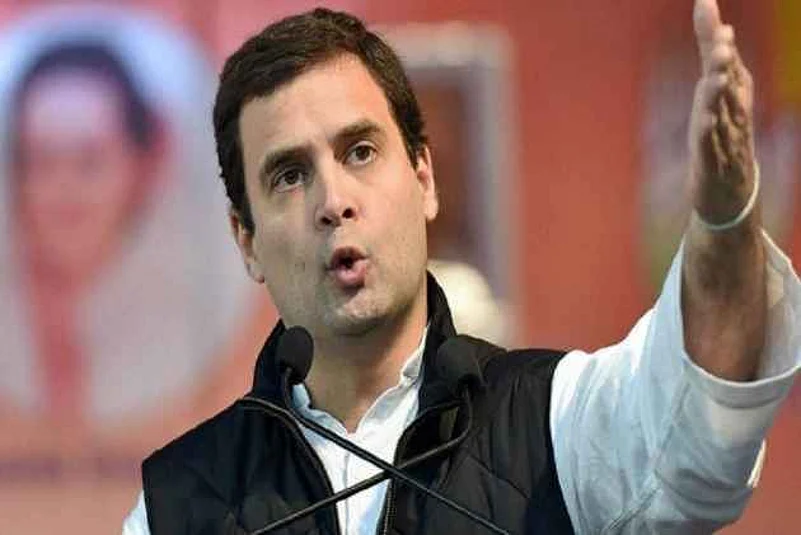Since the Bofors scandal hit the Indian political discourse in the mid-1980s, all major defence contracts in the country have been prone to close scrutiny, both by rival companies as well as political opponents of the government. Predictably, it only gets more intense in an election year.
The term of the Narendra Modi government ends in May 2019. But with crucial Assembly elections coming up in Rajasthan, Madhya Pradesh and Chhattisgarh later this year, the ruling BJP and all the other major political parties, especially the Congress that led the previous government at the Centre, have already gone into a major electoral campaign mode.
The ongoing controversy over the purchase of 36 Rafale fighter jets for the Indian Air Force that India signed with the French in 2016 at an estimated cost of over $9.2 billion and widely described as “Mother of all deals” is therefore, understandable.
Opponents of the Modi government had accused it of tweaking the contract to benefit a particular business house — the Reliance Defence of Anil Ambani — to be the “offset” partner of the French makers of the aircraft, Dassault Aviation. The government had categorically denied the accusation saying it had no role to play in the choice of the French company’s Indian partner.
But recently former French President Francois Hollande sparked off a major political row in India with his comments to french web portal Mediapart by saying that his government had no choice in the matter since India had chosen Reliance Defence as Dassualt’s partner.
“I am totally mystified by Hollande’s action,” a former Indian ambassador to France said. He pointed out that Hollannde who is not in office any longer was under no serious political compulsion to make the remarks. Irrespective of their veracity, he points out the remarks has the potential to jeopardize the Rafael deal apart from embarrassing both the French and the Indian government.
Moreover, despite the intense scrutiny that all major defence deals are not put to, no government wants every single element of it to come into the public domain.
"The PM personally negotiated & changed the #Rafale deal behind closed doors. Thanks to François Hollande, we now know he personally delivered a deal worth billions of dollars to a bankrupt Anil Ambani. The PM has betrayed India. He has dishonoured the blood of our soldiers," Congress president Rahul Gandhi tweeted.
The significance of the current campaign against Modi and his involvement in the Rafale controversy that is being spearheaded by Rahul Gandhi may not be lost among many keen observers of the fast-paced developments in the Indian political theatre. As Prime Minister, Rajiv Gandhi, despite having a massive majority in the Lok Sabha had dwindled his support and ended up marginalised in his own government and party. Predictably, he had lost the next Lok Sabha election in 1989. However, despite insinuations and the obvious political cost, nothing had so far been proved that is beyond “reasonable doubt” of his having received “kickbacks” from the Bofors defence deal, as had been alleged by his political detractors.
Rahul’s attack on Modi on the Rafale deal could also be aimed at achieving similar political dividends.
The process to acquire 126 Medium Multi Role Combat Aircraft (MMCRA) began in 2007 in an attempt to replace the aging MiG aircrafts of the IAF. Six companies — EADS of Germany (makers of Eurofighter Typhoon, US’s Lockheed Martin (makers of F-16 and F-18 aircrafts), Sweden’s SAAB (makers of Gripen), Russia’s Rosoboron Export (makers of MiG-35) and France’s Dassault Aviation (makers of Rafale) — bidded for this coveted contract.
Dassault was finally chosen as the lowest bidder and after putting the Rafale aircraft to the required tests of India’s climatic conditions. Initially, 126 aircraft were to brought, 18 off-the-shelf in a “flyaway” condition and the rest were to be built by the French company in India with an Indian partner.
But even after finalising the deal in 2011 it was marred by inordinate delays mainly over “man hour” required and sharing of responsibility between Dassault and its Indian partner, Hindustan Aeronautic Limited (HAL). This dragged on till the 2014 Lok Sabha elections that brought the BJP-led NDA government to power.
Pressure from the IAF over the urgent need to replace its fast-depleting squadron of fighter aircraft and the possibility of restarting the entire bidding process if the entire contract with Dassault was to be scrapped led the Modi government to by only 36 Rafale aircraft from the French. In this Anil Ambani’s Reliance Defence became the “offset” partner of the French.
The Modi government claimed it had no role to play in France choosing Reliance Defence as its partner. But reports in the French media of Reliance Entertainment of having invested in a French film of Hollande’s partner, Julie Gayet, days before the deal was signed, had raised questions over the fairness of the negotiations and the subsequent deal.
The former French President Hollande has rarely been taken very seriously in French politics and by leaders of the outside world. Though much of his presidency and political career is remembered for his close alliances with many of his female colleagues in the Socialist party and elsewhere, Hollande had also been in charge under whose watch the Rafale deal was signed.
His remarks and observations about the deal, therefore will be taken seriously by many people in France, India and elsewhere. The Rafale deal that has a long history of delay, may add a few more years before they may be inducted by the IAF’s fighting squadrons. Whether or not the Modi government had any direct role to play in making Reliance Defence an offset partner of Dassault will be extremely hard to prove. But controversy over it is likely to linger for several more weeks in the Indian political landscape.
















